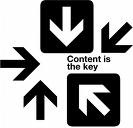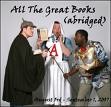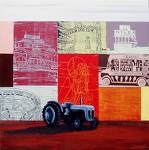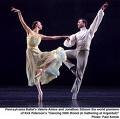Introduction to Literature
Let’s talk about you!
![]()

![]()
 www.treasures4teachers.org
www.treasures4teachers.org
Before I introduce the class, let me introduce the web site. I have learned from students in previous semesters that the more I tell you, in the least complex way, the better you can assimilate the material. Therefore, I have set up this web site. Blackboard (Bb) forces me to break-up ideas that need to be in one place. This web site lays out the back bone to the entire course. Your textbook offers support and writing instruction. I will use Bb for its discussion board, to give quizzes, and to record grades. We will have a quiz with each third of the course, plus a vocabulary test.
The key for you is to look through the entire Eng. 200 site, write down questions, post your questions on the Bb discussion board (DB) page labeled “Open Blog” sheet, and get answers from each other as well as from me. I will be reading the DB frequently. I hope to see answers from each of you, and I will add to the answers you give. This does not mean I will not answer emails, because I will. However, the DB will often be faster and repeat questions will tell me where to develop and add pages. When you look at the syllabus you will see that there is going to be a quiz about the web site. Double motivation to explore the entire Eng. 200 site before we begin.
Note: We will do a few assignments completely on the blackboard. Caution: I will still be looking for THINKING, KNOWLEDGE, grammar, and understanding as my grading tools. However, I want to substitute depth of thinking for length of writing. You are still encouraged to do research--simply cite your source. Each section has its own introduction and the “Fine Print” page also has more information for you.
---------
Introduction to Literature
A definition is an excellent place to start when “introducing” anything. You probably think literature should be defined as that stuff written in books and force-fed you in school. Well that is a form of literature, a form generally known as the ‘canon.’ However, literature is a great deal broader. Literature is making any representation of a feeling, action, or event and sharing it with others.

Literature is one of the most fundamental forms of human communication. It does not matter if the literature takes the form of paintings on a wall, stories around a fire, dancing, singing, or great works of writing. We must tell others what we have seen, what we understand of human nature, what we think the future will bring, what we fear, what we desire, and what evil lurks around the corner. We must make others hear our voice.
The canon of written works accepted as “need to read,” grew out of the beliefs of the dominant society and the world that society understood. Every country has a canon developed the same way. As one generation passes and another takes power, the canon changes slightly. Different books, different authors, but remarkably the same human emotions, problems, and solutions. Beloved, by Toni Morrison, deals with the legal case of an African-American slave, and is told as only an African-American author could tell the story. However, the desperate love of the mother, and the shock of the people around Garner could be and has been told in many stories around the world. What makes Beloved unique (besides the great writing) is the impact the story has on modern Americans. Americans of every skin color can recognize our national guilt.
Beloved is now a portion of the canon, and scores of high school and college students will be required to read it, think about the implications, and make decisions about humankind. The canon changes and while the voices, the situations, and the language change human nature does not change. All literature forces us to look at human nature and decide right/wrong/guilt/innocence and what we would do in the same circumstances.

![]()

Cave painting ![]() Urban wall painting
Urban wall painting
Basically, literature is any form of expressive communication where meaning is conveyed. No meaning conveyed, no real literature. Additionally, literature does not have to be fiction. People who research their family trees often read for hours about the actions of real people living long ago. They are fascinated to see just what it was like to be Great Great Great Uncle Samson a blacksmith, or Great Great Great Grandpa Jones an 18th century doctor, or a revolutionary soldier. People who do not do family trees also read non-fiction for a variety of purposes. When my youngest nephew was born, he had a boatload of allergies. My sister found the ingredient lists on packaged foods to be absolutely fascinating literature.
In this course, we have only a short amount of time. Therefore, for convenience, we will stick with written forms of literature. Worse, we will cover only three forms of literature--drama, poetry, and short stories.
![]()

We are omitting many more forms than we are covering. However, I will be showing you the keys to these three forms, with these keys you can unlock many more forms of literature.
